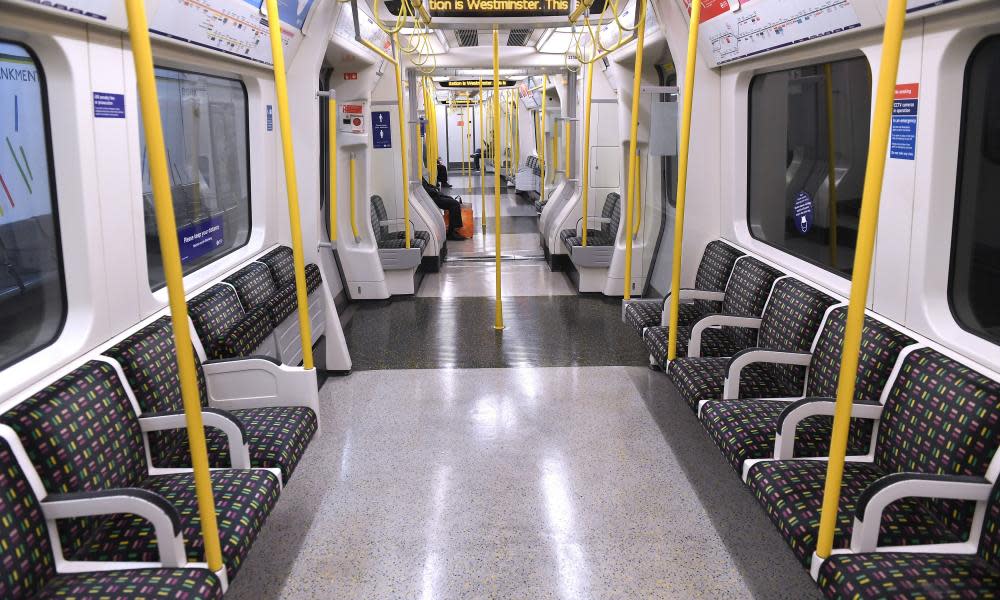Coronavirus vaccine results drive hope for economic recovery

Britain’s economy is approaching a turning point amid hopes for a rapid recovery fuelled by an early coronavirus vaccine, despite renewed lockdowns pushing the country into a double-dip recession, according to a Guardian analysis.
As the government prepares to ease restrictions in England from next week, the latest figures from the economy show business activity plunged in November as the second English lockdown weighed on growth. Redundancies climbed at a faster pace than during the 2008 financial crisis, and the numbers of journeys made on public transport and on Britain’s roads slumped.
However, promising results from coronavirus vaccine trials – suggesting an earlier end to the pandemic than feared – have injected confidence into the flatlining economy. Financial markets around the world have soared in response, while retail sales booming in the run-up to Christmas.
Watch: Your coronavirus vaccine questions, answered
Mohamed El-Erian, the chief economic adviser at the insurance company Allianz, said the vaccine developments show “we are closer to winning the war against Covid,” in a major boost to the economy.
However, the former deputy director of the International Monetary Fund said the UK needed to build on Rishi Sunak’s spending review statement to support people and businesses hit hardest by the pandemic.
Writing in the Guardian, he said: “Unless economic activity bounces back quickly, durably and inclusively, the devastating impact of this year’s 10% plus contraction in economic activity will have a long tail, adding financial and political instability to what already is too long a list of woes.”
Since the onset of the pandemic, the Guardian has chosen eight economic indicators, as well as the level of the FTSE 100, to track the impact on jobs and growth from Covid-19 and the measures used to contain it. Faced with the deepest global recession since the Great Depression, the Covid crisis watch also monitors how the UK is faring compared with other countries.
In the past month, early indicators used to gauge economic activity suggest the second phase of the pandemic has been less damaging for growth than the first.
Mobile phone data showing the number of road trips, bus journeys and trips by train dropped during the second national lockdown in England and amid tough controls in Scotland, Wales and Northern Ireland. But mobility has not plunged by anywhere near as much as in the spring, reflecting potentially higher levels of business activity and social interaction across the country.
Business surveys for November show a collapse in growth with the UK sliding into a double-dip recession as the restrictions took their toll. Activity dropped by the most since May according to the closely-monitored IHS Markit/CIPs purchasing managers index, but remained higher than the level recorded in April when the first lockdown brought the country to a standstill.
The survey, which is monitored by the Treasury and the Bank of England for early warning signs from the economy, also found that companies were more upbeat about their prospects over the next 12 months than at any time since 2015.
The Bank’s governor, Andrew Bailey, said news of an early vaccine could lead to a faster growth rate than previously expected next year. However, with time running out before the Brexit transition expires at the end of December, Bailey warned MPs that failure to strike a trade deal with Brussels would deliver a bigger long-term hit than the lasting damage from Covid.
Despite encouraging signs for the economy, the latest dashboard shows problems are mounting as a difficult winter draws nearer. Official figures show that redundancies rose at a faster rate than during the 2008 financial crisis in the three months to September, before the second lockdown, in a period when the government’s furlough scheme was gradually being wound down.
The headline unemployment rate jumped to 4.8% from 4.1% in August, as the hit to the economy from the first lockdown and continued weak levels of demand shatter the jobs market.
With Boris Johnson planning a three-tier system of Covid restrictions for England to run until spring, the government has extended the furlough scheme until the end of March. However, trade unions and Labour have warned that repeated tweaks to the support package and the news that furlough would expire in October – before the last-minute U-turn – has cost thousands of people their jobs.
Watch: Sunak explains decisions on public sector pay
Faced with the worst UK recession in three centuries, Rishi Sunak used his spending review statement on Wednesday to warn that the economic emergency from Covid-19 has only just begun. In response, the chancellor has delivered 14 major spending announcements this year, with funding worth £280bn to fight the virus and help struggling households and businesses.
However, Sunak also launched a renewed public sector pay freeze in an echo of the former chancellor George Osborne’s austerity drive in the aftermath of the 2008 financial crisis. Experts warned that additional support rather than spending cuts would be needed over the coming months, with the economy expected to remain weak before a vaccine can be delivered, and due to the lasting damage inflicted during the pandemic.
El-Erian said: “The light at the end of the dark virus tunnel is now shining a lot brighter after too many tragic deaths, crippling hospitalisations and endless disruptions to our normal lives. Yet we are not at our destination. The next few months have a material impact on our longer-term wellbeing.”


